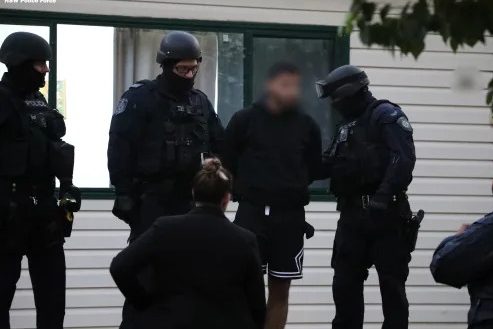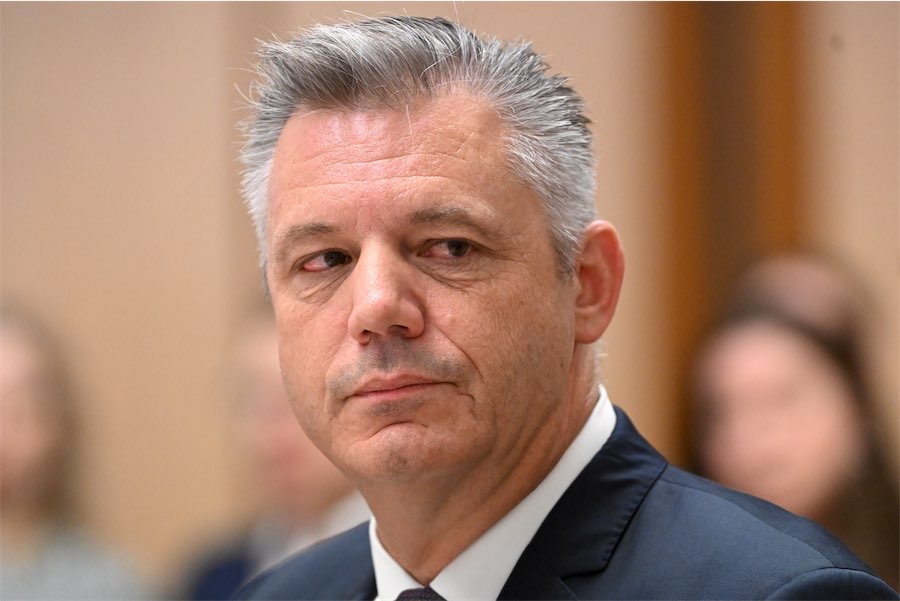MALCOLM Turnbull turned on the machismo and Peter Dutton stayed tough, after the High Court confirmed Australia’s offshore detention regime is constitutional.
It was a hard face that the government turned to the 267 people, including 37 babies, who now face deportation after the judgment.
“Nobody should ever doubt the resolve of this government to keep our borders secure,” Turnbull declared to parliament, in a megaphone message directed particularly at people smugglers.
Dutton reaffirmed that the policy is to return those individuals and their families who have been brought to Australia, mostly for medical reasons. They had been in limbo until the High Court judgment.
“The principle that we’ve adhered to in the past that we will in the future is that when that medical assistance has been provided and there’s no longer a case to stay in Australia, we’ll work with those people to return to their country of origin or to return to Nauru,” he told the ABC.
But significantly, he left a little wriggle room. The cases would be looked at “individually”, he said.
He wouldn’t “send children back into harm’s way” – whatever that means.
The group includes a five-year-old who has allegedly been raped. But apart from specific dangers, doctors with experience of Nauru have repeatedly pointed out that children are in “harm’s way” just by being there.
Whether in practice Dutton exercises discretion, allowing some mothers and children to stay in Australia for the time being, remains to be seen. One can think – or hope, on the basis of his past attitudes – that Turnbull would be pressing him to be flexible. Albeit with a minimum of publicity.
Cabinet on Tuesday discussed the issue in anticipation of the court decision, which was widely expected to be in the government’s favour. At that meeting there was concern that the humanitarian aspects of the situation should be considered.
On Thursday the Human Rights Commission will release a report about the medical condition of people at Darwin’s Wickham Point centre, where most of those vulnerable to being returned to Nauru are currently held. The report went to the government in November. Its publication will add to the pressure to show some compassion.
Dutton claims there is a “lot of misinformation” about Nauru. “There’s obviously a lot of emotion around this issue at the moment … The situation on Nauru is quite different than the way in which people are painting it. For example, nobody is held in detention on Nauru. There is the ability for people to come and go freely in the community,” he told the ABC.
But the difference between being “held in detention” and being detained is minimal. Nauru now has an “open” centre but people can’t leave the country. Except if they want to go back to their home countries, as Dutton fervently wishes they would. “We want to provide support to these people. If they don’t want to go back to Nauru, we’re happy to provide support to return them to their country of origin,” he said.
Citing humanity – preventing drownings at sea – the government is extraordinarily inhumane, keeping in indefinite limbo on Nauru and Manus many hundreds of people who just happened to get on boats at the wrong time.
Dutton talks on and on but neither he nor anyone else in the government answers the simple question: how long do you think Australia can keep people effectively prisoners in foreign countries? If the Liberals are in office a decade, do they expect them still to be there?
Neither Dutton nor Foreign Minister Julie Bishop has been able to get third countries to take the people on Nauru and Manus. An agreement with Cambodia cost a fortune but only a tiny handful could be persuaded to go. The government would not take up an offer New Zealand made in Labor’s time – it has now expired.
Turnbull cannot credibly defend sending babies to Nauru or the whole offshore situation. He knows that eventually he has to find a pathway out for the people on Nauru and Manus – while keeping the boats at bay. But how to do that eludes him. After the election, assuming he wins, there might be a better prospect. If not, the fate of all those unfortunate people hardly bears thinking about.
![]()
Michelle Grattan, Professorial Fellow, University of Canberra
This article was originally published on The Conversation. Read the original article.
Who can be trusted?
In a world of spin and confusion, there’s never been a more important time to support independent journalism in Canberra.
If you trust our work online and want to enforce the power of independent voices, I invite you to make a small contribution.
Every dollar of support is invested back into our journalism to help keep citynews.com.au strong and free.
Thank you,
Ian Meikle, editor





Leave a Reply